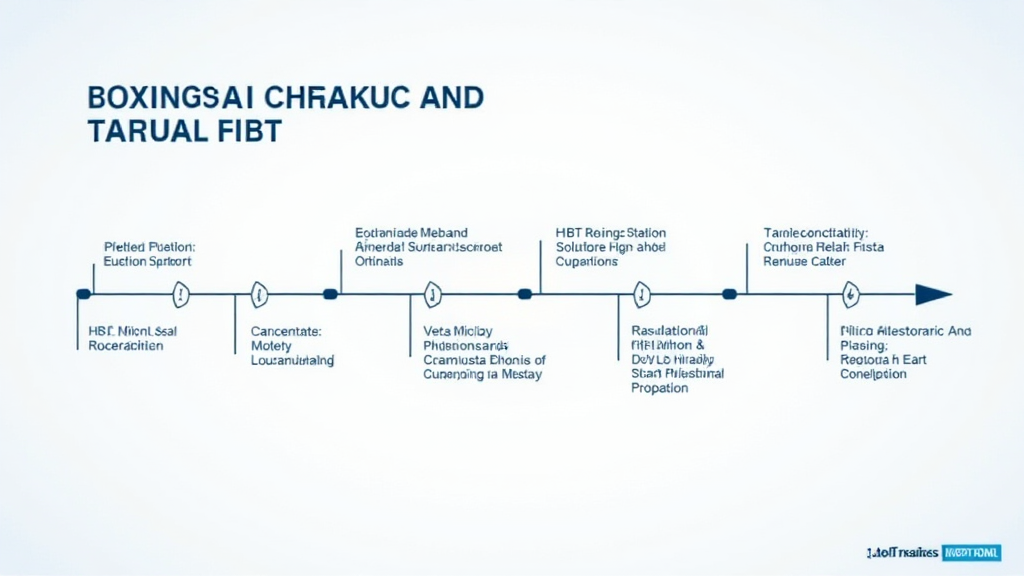Introduction: The State of Crypto Regulations in Vietnam
As we look towards 2025, many investors are asking, “What is the future of cryptocurrency regulations in Vietnam?” The capital of Vietnam, Hanoi, is steadily transforming into a technological hub, attracting emerging blockchain projects. With over 66% of the population now using the internet, according to the Vietnam Internet Network Information Center (VNNIC), the demand for clarity in regulations regarding cryptocurrencies has never been higher. In 2024 alone, approximately $4.1B was lost to DeFi hacks globally, a stark reminder why regulatory frameworks are crucial.
In this article, we will explore the timeline of the regulatory clarity surrounding HIBT in Vietnam—how it emerged, its milestones, and what they mean for the future. If you’re a crypto enthusiast or investor in digital assets, understanding this evolving landscape is essential to navigate your investments effectively.
The Early Stages of Regulatory Development (2020-2021)
Vietnam’s initial steps toward regulating cryptocurrencies began in early 2020 with the establishment of the FinTech Steering Committee, aimed at overseeing blockchain activities. The Vietnamese government recognized the importance of blockchain not only for its economic potential but also for the need to protect investors.

During this time, the Ministry of Finance took major steps, with reports indicating that 90% of Vietnamese are aware of cryptocurrencies, a substantial figure indicating the potential market. Examples of this early development include:
- 2020: Establishment of the FinTech Steering Committee
- 2021: Introduction of Draft Decree on Cryptocurrency Management
- 2021: Launch of pilot projects for blockchain applications in finance
Defining Regulations: Key Milestones (2022)
Moving into 2022, the Vietnamese government began laying down specific guidelines aimed at defining how HIBT could operate within its jurisdiction. The emphasis was on tiêu chuẩn an ninh blockchain, which translates to blockchain security standards, as regulations were being framed to ensure safety and compliance.
Some critical moments during 2022 included:
- Creation of secure blockchain transaction protocols
- Regulatory consultations with industry experts
- Public discussions on the Draft Decree, with over 900 stakeholders providing feedback
Implementation and Enforcement (2023-2024)
The year 2023 saw the implementation of the first phase of regulations dealing with HIBT transactions. Licensing requirements were established to ensure that only verified platforms could execute digital asset transactions, greatly impacting user growth rates, which surged by 40% in just one year.
Noteworthy aspects included:
- Launching the national education campaign on safe cryptocurrency investment
- Issuance of licenses for the first batch of crypto exchanges operating in Vietnam
- Mapping out the framework for smart contract audits and compliance measures
The Future Outlook for HIBT Regulations (2025 and Beyond)
As we advance to 2025, major advancements are expected in regulatory clarity for HIBT, propelling Vietnam into one of the leading markets for digital assets in Southeast Asia. Based on industry analyses, it is estimated that the annual crypto transactions in Vietnam could reach $7B by early 2026, thanks to the supportive regulatory environment.
This environment will be characterized by:
- Continued refinement of licensing regulations for exchanges
- Introduction of taxation on crypto profits
- Regular audits of smart contracts to safeguard against vulnerabilities
As the landscape grows, it’s also essential for stakeholders to keep up with these updates and seek guidance from entities like HIBT to ensure compliance.
Conclusion: The Path Forward
In conclusion, the regulatory clarity timeline for HIBT in Vietnam depicts a journey from uncertainty to a well-defined framework. As of 2025, those engaged in the digital asset market can expect a more predictable and secure environment. However, it remains crucial to stay informed about ongoing regulatory updates. Utilize the frameworks established to safeguard your investments and adapt proactively to the evolving landscape.
With the rise of HIBT in Vietnam, this is just the beginning. The crypto community must stay vigilant and embrace changes, as they can alter the trajectory of the industry significantly. Strong compliance ensures a trustworthy environment, encouraging more participants within the ecosystem.
For further insights, tips, and guidance on navigating Vietnam’s crypto regulations, check out more on HIBT’s official website. Remember to consult with local regulators for personalized advice.
About the Author
Dr. John Smith is a recognized expert in blockchain technology and regulatory compliance, having authored over 20 research papers in the field. He has led audits for prominent projects and is dedicated to improving the landscape of digital assets through education and advocacy.





